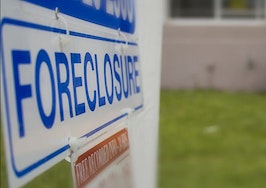- Not all land is created equal -- land close to the seashore and within commuting distance in California is not like Colorado plains farmland.
Understanding real estate is hard. Partly because real estate has characteristics different from financial markets (each piece is unique, uniquely located and can’t be moved to a better market for sale), but in equal part because of the fantastic misinformation pushed at us by alleged experts, often authentic ones in other fields.
Is land really a ‘disappointing investment’?
Consider Robert Shiller, professor of economics at Yale. Author of “Irrational Exuberance,” properly applying Tobin’s Q to the stock market bubble, which peaked in January 2000, predicting its burst, the book published on the day the bubble blew.
Shiller then began to fancy himself a predictive expert on the irrationality of crowds (there are few, if any such experts on crowds — we are all mere observers). He then further assumed that he is an expert in real estate — it had a bubble, and his wisdom must apply there, too.
Shiller teamed with Karl Case to create the S&P/Case-Shiller Home Price Index. “Chip” Case did know a lot about real estate. But Chip died young on July 15 (I have waited to post this screed out of respect for him).
Had he lived, and proofed Robert Shiller’s latest, published the same day Chip died, Shiller’s New York Times column might have ended in the wastebasket where it belongs, instead of forwarded to the in-boxes of who knows how many real estate professionals who have since struggled to explain its foolishness to clients.
Shiller titled his piece, “Why Land and Homes Actually Tend to be Disappointing Investments.” On its face an accusation of most Americans as fools to have put money into a residential market today worth well over $20 trillion. But, nevermind, hear him out.
His critique of land value is based on the long-term change in the value of farmland, which he says “can be converted to housing.”
What’s wrong with this picture?
Yes, farmland can be converted to housing — but it depends on where it is.
Ever drive across eastern Colorado into Kansas? Fair farmland, if expensively irrigated from depleting aquifers. A lot of it should have been left to the buffalo, and good luck with subdividing and selling building sites.
More than half of the counties on the Great Plains are losing population.
Shiller’s location miss is magnified by apparent ignorance of this appraisal principle: “highest and best use.” We determine that use by analyzing the income which can be derived from use. Agriculture produces low and volatile income.
To take on higher value, land must be proximal to incomes whose owners will use it to pay to rent or buy land.
Land becomes expensive when it’s located near a healthy local economy (incomes!), in a place where it’s in short supply (seacoast is nice; within commuting distance of jobs is fine), and in a place receiving migration.
Using an index of agricultural land to illustrate the value of land as an investment is a pre-conclusion in search of supporting data, and failing.
Then Shiller turned to the advent of the 200-square-foot micro-apartment to make his point. “Rules are being changed…allowing the little apartments to be built and to accommodate many more people per acre of city land. These factors could lead to near-zero future demands on valuable urban land.”
No, sir — actually, completely backwards. Micro-apartments are perfect evidence of runaway demand for land, and its price.
On Manhattan Island, nobody can afford to live in a detached house except the mayor, in Gracie Mansion. Few but hermits would choose to pay two or three thousand dollars per square foot to live in 200 square feet unless that’s all they could afford.
Micro-apartments are an intensified use driving up the price of land, not down. In the same neighborhood, a lot zoned for four units is always worth more than a lot zoned for one.
To be charitable, real estate gets a lot of bad analysis because it’s hard to understand. Lord knows the stock market is the subject of a lot of crackpot theorizing.
Lou Barnes is a mortgage broker based in Boulder, Colorado. He can be reached at lbarnes@pmglending.com.











